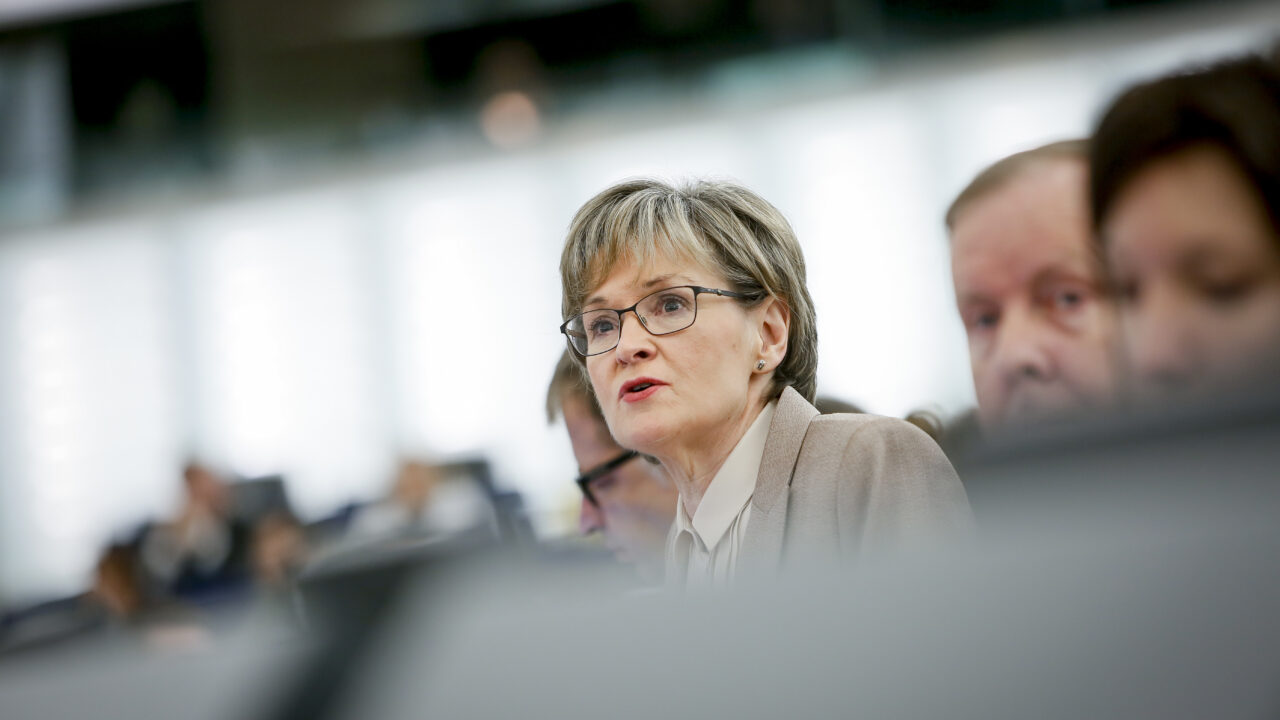The EU Farm to Fork and Biodiversity strategies will shape the future of EU agriculture alongside the Common Agricultural Policy (CAP), according to Mairead McGuinness, MEP and first vice-president of the European Parliament.
The MEP highlighted that the strategies also see “an opportunity for farmers to improve their income position” by meeting specific consumer demands.
Farm level
At farm level, the plan sees less fertilisers, less pesticides and a reduced use of antimicrobials/antibiotics, as well as a significant increase in the area of land under organic farming.
Legislation already exists on sustainable use of inputs, but strict implementation is required, the MEP says.
Reacting to the launch of the strategies earlier this week, McGuinness said:
Consumers are to be provided with more nutritional and sustainability information about the foods they buy, to address what the commission sees as poor dietary choices.
Such choices are evident with obesity on the increase, while over 30 million Europeans don’t have access to quality food, and 20% of food is wasted and thrown away, she noted.
The food supply chain has shown “remarkable resilience” during the coronavirus pandemic with few reports of empty supermarket shelves, she added.
“And the commission recognises that European food is safe, plentiful, nutritious and of high quality. But this comes at an unacceptable cost, with the food chain as one of the key drivers of climate change and environmental degradation.”
Farmer incomes
She said the Farm to Fork strategy recognises that farmer incomes are around half that of the average worker in the economy as a whole.
It sees an opportunity for farmers in improving their income position by meeting the demands of some consumers who have concerns around high environmental, health and ethical issues.
For the processing and retail sectors a code of conduct is proposed for good practice around food.
McGuinness said there is already a lot of work going on in Ireland to address the biodiversity climate and environmental challenge, “including a significant number of farmers who are farming for nature and who can show the way forward”.
A new market is proposed for carbon stored on farms, giving the possibility of a new income stream for farmers with high emitting industries willing to pay for carbon storage.
“These new initiatives are all part of the EU Green Deal, which targets climate neutrality by 2050. This target is important to address the climate and environment challenges. It means that all sectors, including agriculture, will need to reduce emissions,” she said.
‘Fairer economic returns’
The MEP said the farm to fork strategy aims to achieve fairer economic returns in the food chain.
“However, achieving that is going to need a forensic look at food pricing and how value added in the supply chain is distributed.”
She said the food processing and retail sectors are being asked to reduce their overall environmental footprint and to increase the availability and affordability of healthy, sustainable food options.
The MEP said the next phase is for the European Parliament and European Council to respond to the Farm to Fork and Biodiversity strategies.
“It is no longer the CAP that will shape EU agriculture, the farm to fork and biodiversity strategies will too,” she said.
